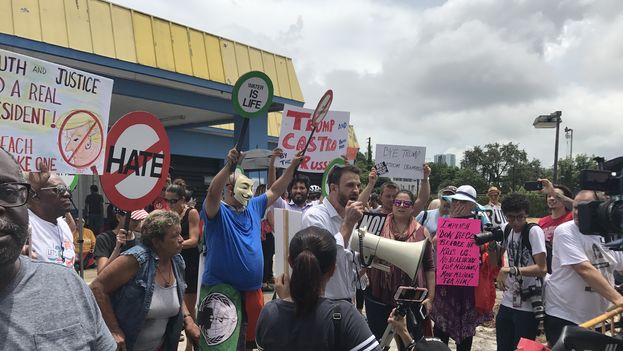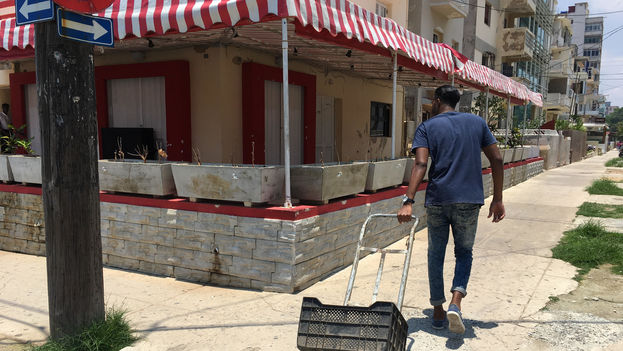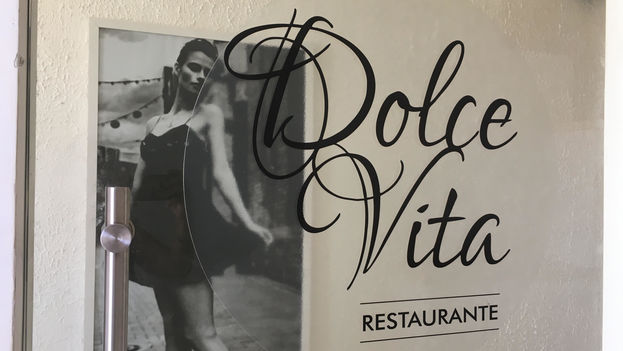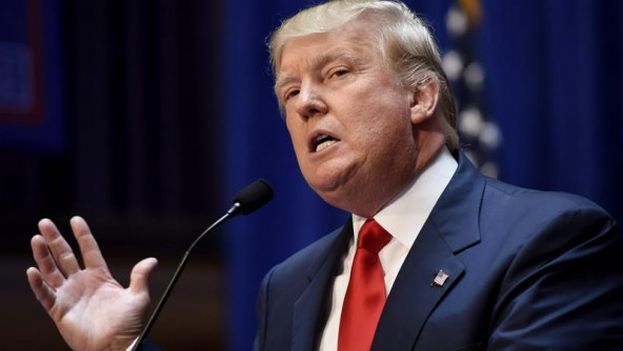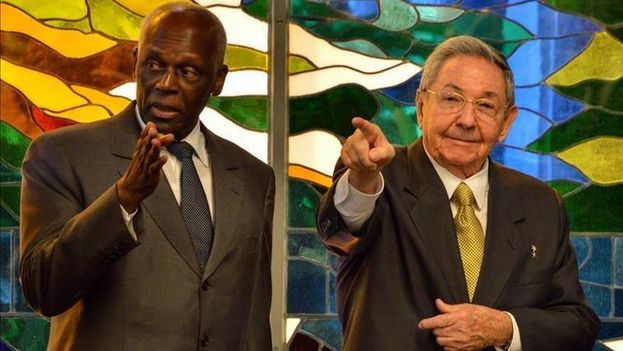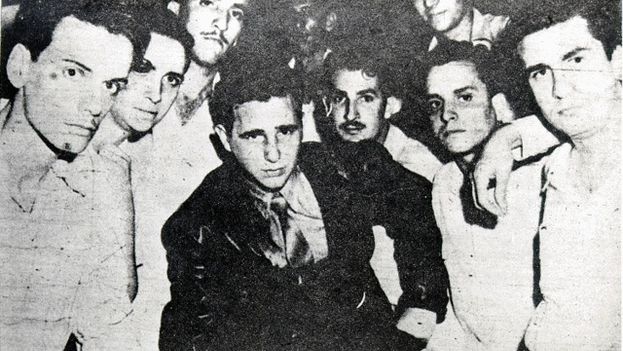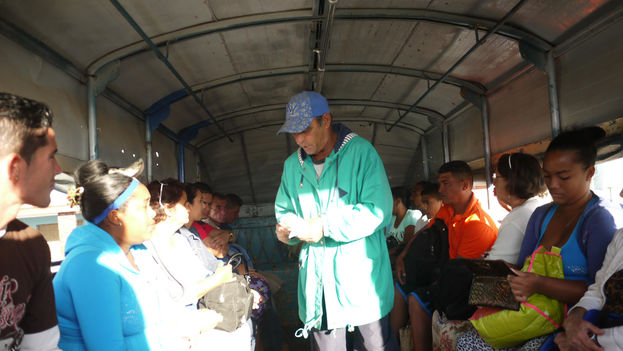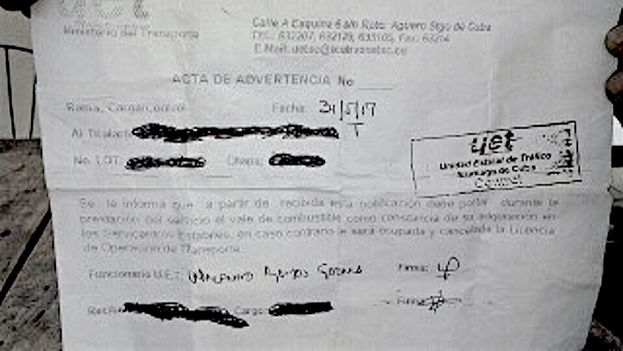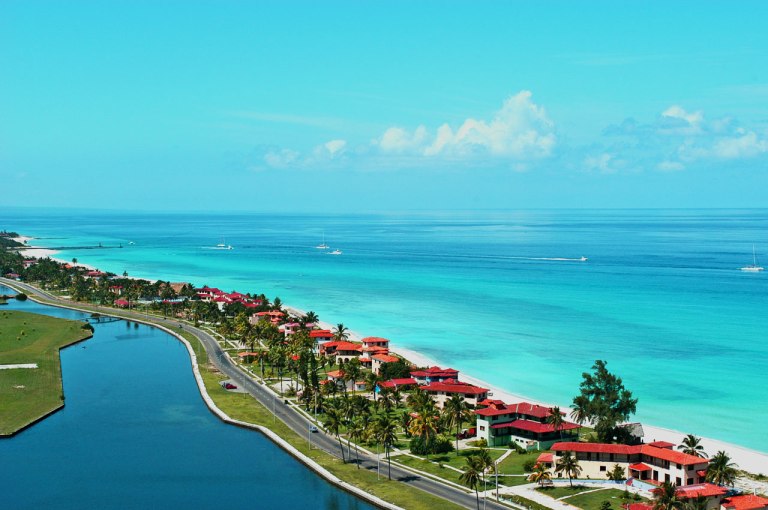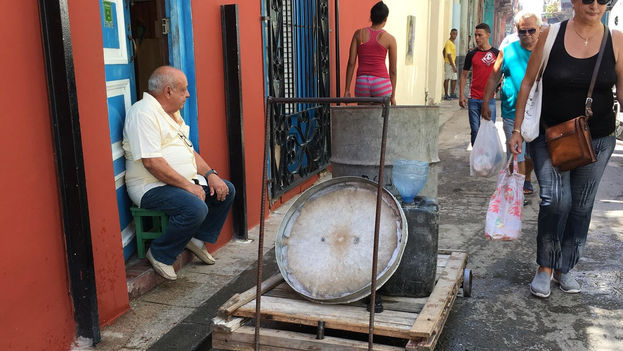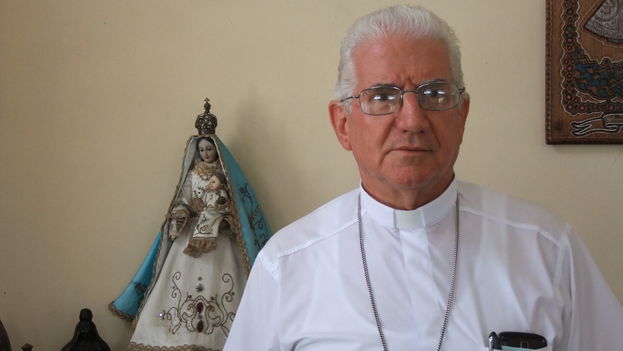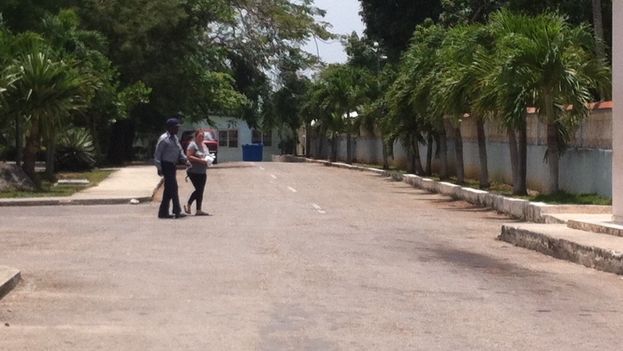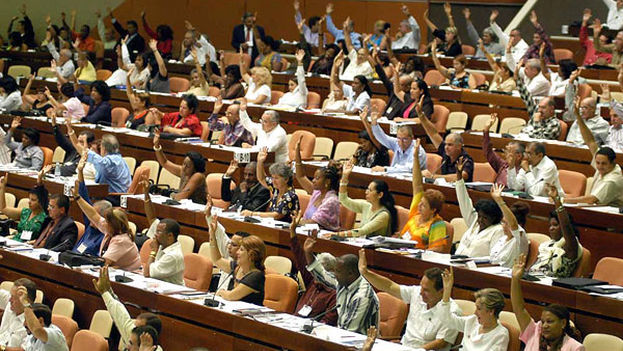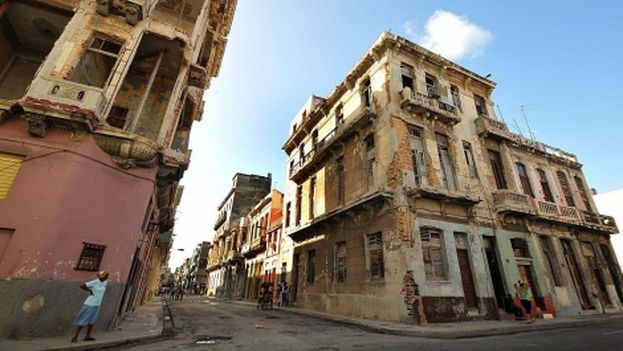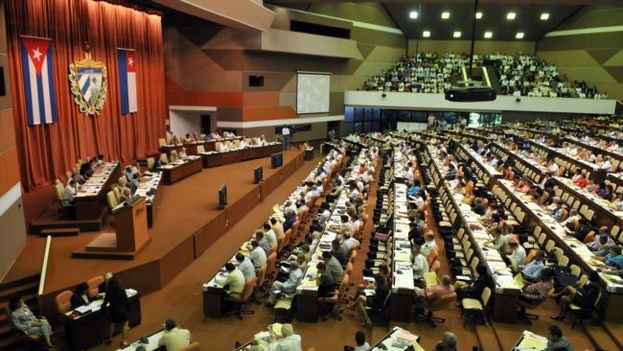However, Fidel Castro’s extensive speeches constituted only the most visible part of his style of governing. They were the moments of collective hypnotism, peppered with promises and announcements of a luminous future that allowed him to establish a close bond with the population, to incite class hatred and to extend his growing power.
Castro has been the most complete product of Cuban populism and nationalism. Evils that sink their roots into national history and whose best breeding ground was the Republican era (1902-1958). Those winds brought the hurricane that shaped a young man born in the eastern town of Biran, who graduated as a lawyer and came to hold the military rank of Commander-in-Chief. continue reading
The political framework in which Castro was formed was far from a democratic example. Many of the leaders of that convulsed Cuba of the first half of the twentieth century did not distinguish themselves by presenting programmatic platforms to their constituents. The common practice was horse-trading to obtain votes, along with other aberrations such as stealing ballot boxes or committing fraud.
From his early days, the young attorney elbowed his way into the milieu of those figures who relied on gangster like behavior, rather than the transparent exercise of authority. He quickly absorbed many of the elements of demagoguery that would be greatly useful to him later when the time came to subject an entire nation.
Unlike republican populism, whose purpose was the conquest of electoral favor, revolutionary populism had as its goal the abolishment of the structures of democracy. From January 195,9 the civic framework was systematically dismantled and the laws were subjugated to the disproportionate will of a single man.
To achieve this dream of control, the Maximum Leader persuaded the citizens that they could enjoy a high degree of security if they renounced certain “bourgeois freedoms,” among them the ability to elect their leaders and a system of power in which leadership alternates.
The so-called Moncada Program outlined in History Will Absolve Me, is a concentration of these promises in the style of a tropical Robin Hood. The pamphlet was presented as Fidel Castro’s plea of self-defense during the trial in which he was indicted for the armed attack on the Moncada Barracks, the main military fortress of Santiago de Cuba, in July 1953.
Until that moment, this man was practically unknown as a political figure. The boldness that characterized the action enveloped him in an aura of heroic idealism that set him up as the leader of the revolutionary alternative to the dictatorship of Fulgencio Batista.
In his manuscript, where he described the problems the country faced, he never warned that solving them would require the confiscation of properties. He limited himself to detailing the necessity of an agrarian reform that would eliminate the latifundio and distribute land to the peasants. These were proposals that rapidly earned him sympathies among the poorest.
Upon leaving prison, Castro was convinced that the only way to overthrow the dictatorship was by force. He organized an expedition and opened a guerrilla front in the mountains of the eastern region of the Island. Two years later, his triumphal entry into the capital and his charismatic presence made him the beneficiary of a blank check of political credit, endorsed by the majority of the population.
The first populist ruse of the new regime was to present itself as democratic and to deny any tendency that could identify it with communist doctrine. At the same time that it presented itself as the enabler of freedom, it expropriated the newspapers, the radio stations and the television channels.
The regime struck a deadly blow to civil society by establishing a network of “mass organizations” to bring together neighbors, women, peasants, workers and students. The new entities had in their statutes a clause of fidelity to the Revolution and perform – still to this day – as transmission wires from the power to the population.
The first revolutionary laws, such as the Agrarian Reform, the rent reductions, the Urban Reform and the confiscation of properties, constituted a radical rearrangement of the possession of wealth. In a very short time the State stripped the upper classes of their property and became the owner of everything.
With the enormous flow of treasure, the new power made multi-million investments in social benefits that allowed it to achieve “the original accumulation of prestige.”
From its original proclamation in April 1961, the socialist system declared the irreversible nature of the measures taken. Maintaining the conquests achieved required the implementation of a system of system backed by a legal structure that would make it impossible for former owners to recover what was confiscated.
The new situation brought with it a powerful apparatus of internal repression and a large army to deter any external military threat. The most important bars of the cage in which millions of Cubans were trapped were erected in those early years.
To the binomial of an irreversible conquest and an undisputed leader was added the threat of an external enemy to complete the holy trinity of revolutionary populism.
Conquests
The main conquests in those initial years focused on education, health and social security. Economic centralism allowed the new ruling elite to establish ample gratuities and to distribute subsidies or privileges in exchange for ideological fidelity.
Like all populism that rises to power, the government also needed to mold consciences, impose its own version of history, and create from the teaching laboratories an individual who will applaud greatly and question little.
In 1960 the Island was already among the Latin American countries with the lowest proportion of illiterates, but even so the Government summoned thousands of young people to isolated areas to teach reading and writing. Participation in this initiative was considered a revolutionary merit and dressed in heroic tones.
The text of the primer to teach the first letters was openly propagandistic and the literacy campaigners behaved like political commissars who, on reading the phrase “The sun rises from the East,” needed to add as a clarification “and from the East comes the help we are given by the Socialist countries.”
At the end of the process, a massive plan of boarding schools operated under military methods began, the goal of which was to remove students from the influence of their families. Mass teacher training also began, thousands of schools were built in rural areas, and privately run schools were taken over by the Ministry of Education.
From this rearrangement the “New Man” was supposed to emerge, free from “petty-bourgeois laziness.” An individual who had never known exploitation by a boss, paid for sex in a brothel, nor exercised his freedom.
The fact that there was not a single child left on the island who didn’t attend school became a dazzling paradigm that blocked the view of the shadows. To this day, the myth of Cuban education is being used by the defenders of the system to justify all the repressive excesses of the last half century.
The state monopoly turned the education system into a tool of political indoctrination while the family was relegated to the role of a mere caretaker of the children. The profession of teacher was trivialized to an extreme degree, and the costs of maintaining this giant apparatus became unsustainable.
Many of the achievements that were put into practice were unworkable in the context of the national economy. But the grateful beneficiaries had no opportunity to know the high cost these campaigns imposed on the nation. The country was plunged in an inexorable decapitalization and the deterioration of its infrastructure.
For decades, the media in the hands of the Communist Party helped to cover up such excesses. But with the disintegration of the Soviet Union and the end of the massive subsidies that the Kremlin sent to the island, Cubans came face to face with their own reality. Many of these supposed advantages vanished or were plunged into crisis.
The Maximum Leader
One of the hallmarks of populism is the presence of a leader who is given full confidence. Fidel Castro managed to turn that blind faith into obedience and a cult of personality.
The merging of the leader with the Revolution itself and of Revolution with the Homeland gave rise to the idea that an opponent of the Commander-in-Chief was “anti-Cuban.” His flatterers called him genius but in his long speeches it is difficult to find a theoretical nucleus from which a conceptual core can be extracted.
In the oratory of the Maximum Leader, a preponderant role was played by his histrionic character, the cadence of his voice and his playbook of gestures. Fidel Castro became the first media politician in Cuba’s national history.
Voluntarism was perhaps the essential feature of his personality and the hallmark of his extended mandate. To achieve his objectives at the necessary price, to never surrender before any adversary and to consider every defeat as a learning opportunity that would lead to victory, served him to conquer a legion of fidelistas.
The target dates for obtaining the luminous future promised by the Revolution could be postponed again and again thanks to Castro’s apparently inexhaustible political credit. The demand for people to tighten their belts to achieve well-being became a cyclical political stratagem to buy time.
There were some rather abstract promises, in the style of there would be bread with freedom, and others more precise, such as the country would produce so much milk that not even three times as many people could drink it all. The largest zoo in the world would be built on the island and socialism and communism would be constructed at the same time.
In December 1986, after 28 years of failed efforts, Fidel Castro had the audacity – or desperation – to proclaim before the National Assembly the most demagogic of all his slogans: “Now we are going to build socialism!”
The Enemy
Populist regimes often require a certain degree of tension, of permanent belligerence, to keep the emotional flame burning. Nothing is better for that than the existence of an external enemy. Even better if it is a powerful one that makes alliances with the regime’s political opponents.
From the time he was in the Sierra Maestra commanding his guerrilla army, Fidel Castro determined who that enemy would be. In a letter dated June 1958, he wrote: “When this war is over, a much longer and larger war will begin for me, the war that I will launch against them [the Americans]. I understand that this is going to be my true destiny.”
Between April and the end of October 1960 there was an escalation of clashes between Washington and Havana. The expropriation of large tracts of land held by US companies, the suspension of the sugar quota enjoyed by the Island, the nationalization of US companies based in Cuba, and the start of the embargo on goods from the North are some of the most important.
During that same period, Soviet Deputy Prime Minister Anastas Mikoyan visited Havana, diplomatic relations were restored with the USSR and Fidel Castro met in New York with Nikita Khrushchev, who went on to say in an interview: “I do not know if Castro is a communist, but I am a fidelista.”
In the eyes of the people Fidel Castro’s stature rose and he begin to take on the outlines of a world leader. The exacerbation of nationalism, another characteristic of the populists, reached to its fullest expression when Cuba began to be shown as the little David facing the giant Goliath.
Revolutionary arrogance, driven by the conviction that the system applied in Cuba should extend to the whole continent, led many to believe that fomenting the Revolution beyond the borders was not only a duty but a right protected by a scientific truth.
The populist root of this “liberator of peoples” thinking led tens of thousands of Cuban soldiers to fight in Algeria, Syria, Ethiopia and Angola as part of the geopolitical interests of the Soviet Union in Africa, although wrapped in the clothing of a disinterested Revolutionary internationalism with other peoples toward whom there supposedly was a historical debt.
The enemy was not only “American imperialism” but the South African racists, the European colonialists, and any element that appeared on the international scene that could become a threat to the Revolution.
Convinced, like the Jesuit Ignacio de Loyola, that “in a besieged plaza, dissidence is treason,” every act of internal opposition has been identified as an action to contribute to that enemy and by the official propaganda every dissident deserves to be described as a “mercenary.”
However, the beginning of the diplomatic thaw between Cuba and the United States in late 2014 has shaken the thesis of a permanent danger of invasion. The death of Fidel Castro, the decline of leftist forces in Latin America and the announced stepping down of Raul Castro by February 2018 diminish what remains of revolutionary populism.
On the other hand, younger Cubans have a less grateful and more critical perception of those conquests in the field of education and healthcare that were presented as a generous gift of the system.
The reappearance of notable social differences arising from the urgent acceptance of the rules of the market and the growth of the economy’s “non-state sector” – the authorities are reluctant to call it “private sector” – have rendered unrepeatable the slogans of biased egalitarianism espoused by the ideological discourse that justified the obsolete rationing system for food products.
Haute cuisine restaurants and hotels of four or five stars, once exclusively for tourists, are now within reach of a new class of Cubans. The elimination of the exploitation of man by man, an essential banner of Marxist-Leninist socialism, has not even been discussed.
The widely shared conviction that the country has no solution is one of the main drivers of emigration in recent years. But this lack of hope for the future, combined with fierce repression, also limits the work of the opposition.
The system that once counted on enthusiasm is now supported by virtue of reluctance. The so-called historical generation still in power is fewer than a dozen octogenarians in the process of retirement and the new offspring are more inclined to business than to the podium. Today’s grandchildren of those populists have more talent for marketing than for slogans.
_______________
Editorial Note: This text is part of the collective book El Populismo del Populismo , which will be presented this Tuesday at the Casa de América, in Madrid. The coauthors are, among others, Alvaro Vargas Llosa, Carlos Alberto Montaner, Mauricio Rojas, Roberto Ampuero and Cayetana Álvarez de Toledo.

![]() 14ymedio, Generation Y, Yoani Sanchez, Havana, 21 June 2017 — It has been six months since a photo taken from 14ymedio’s newsroom, last 21 December, captured the moment when a reddish sun was about to sink into the longest night of the year. This Wednesday the image reflects the other extreme and the reporters of this newspaper look out over the day with the most light: the summer solstice.
14ymedio, Generation Y, Yoani Sanchez, Havana, 21 June 2017 — It has been six months since a photo taken from 14ymedio’s newsroom, last 21 December, captured the moment when a reddish sun was about to sink into the longest night of the year. This Wednesday the image reflects the other extreme and the reporters of this newspaper look out over the day with the most light: the summer solstice.
